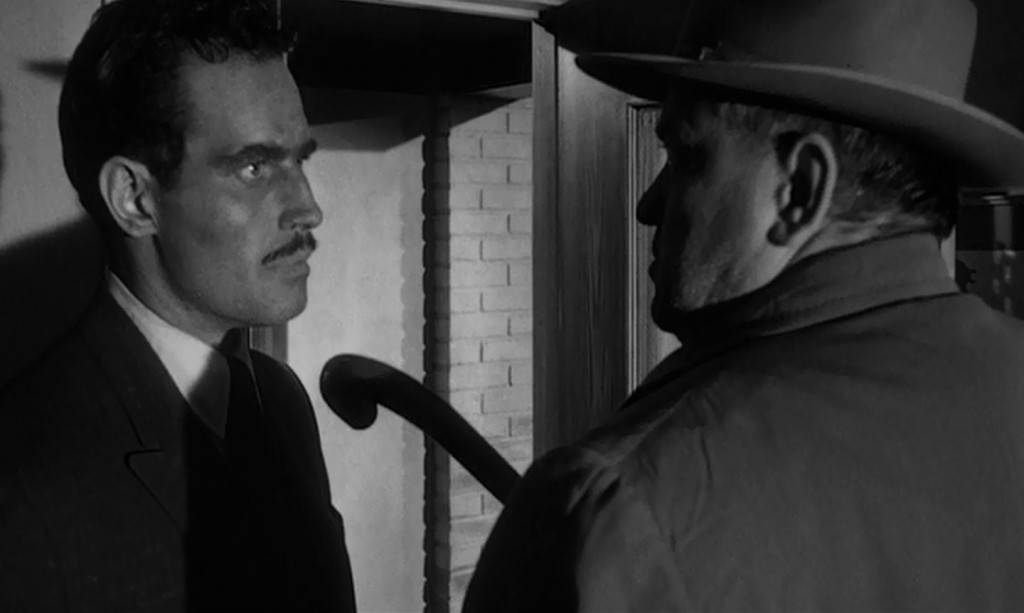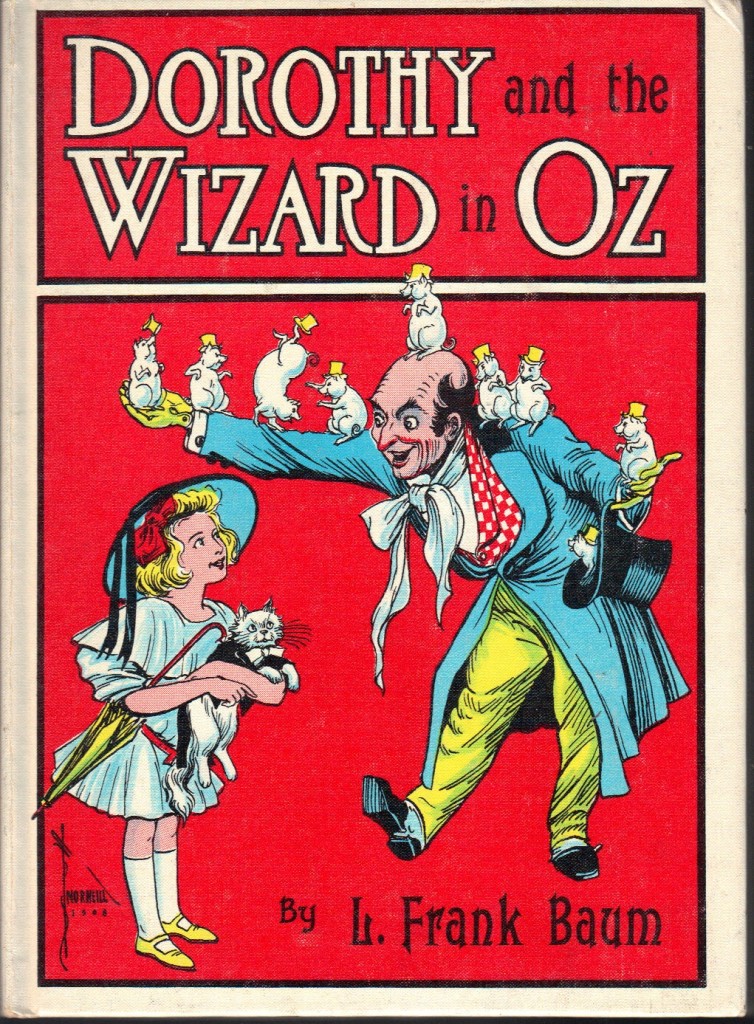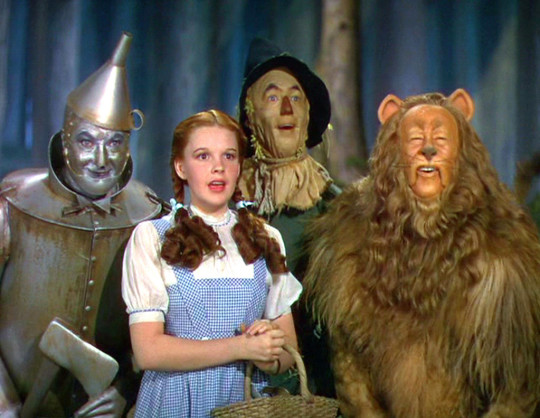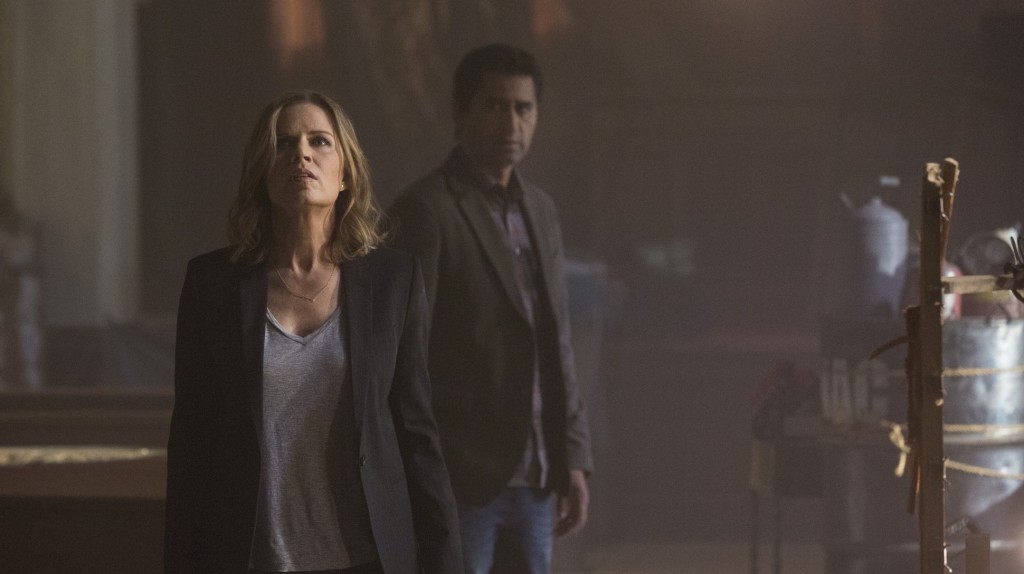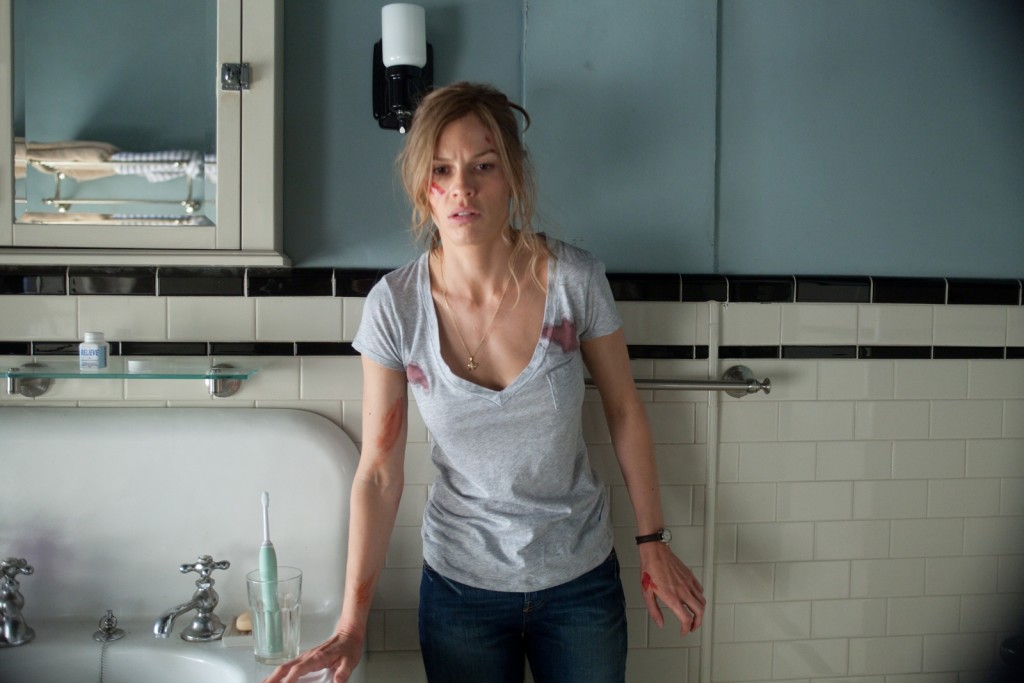Get Your Script Reviewed On Scriptshadow!: To submit your script for an Amateur Review, send in a PDF of your script, along with the title, genre, logline, and finally, something interesting about yourself and/or your script that you’d like us to post along with the script if reviewed. Use my submission address please: Carsonreeves3@gmail.com. Remember that your script will be posted. If you’re nervous about the effects of a bad review, feel free to use an alias name and/or title. It’s a good idea to resubmit every couple of weeks so your submission stays near the top.
Genre: Action/Horror/Sci-Fi
Premise (from writer): After a mysterious virus ravages Los Angeles, a father and daughter trapped in the evacuated city attempt to escape from a horde of infected canines.
Why You Should Read (from writer): I moved to Los Angeles to pursue acting and creative writing. This is my attempt at a feature-length screenplay. The premise is World War Z meets Cujo. Here’s a tagline for the movie: “Welcome to the dog days of summer.”
Writer: Jesse Zamorano
Details: 110 pages
Virulence came at us about a month ago and just barely lost out to eventual winner, Endwar. But the great thing about Scriptshadow is that, due to my laziness, you can ALWAYS MAKE A COMEBACK!
You never know when I’m going to be too tired to look for Amateur Offerings on a Saturday morning and have to dig back into previous posts to find a script to review. Jesse Zamorano caught the lucky stick square in his jaws. And now it’s time to see if this leash-loving scribe-barker can take advantage of it.
Virulence definitely has a “movie” premise. People trying to make it out of an infected city is a time-tested idea. And Jesse was smart enough to add a twist. Instead of the typical zombie takeover approach, he made the enemy man’s best friend.
Our best friend – aka our protagonist – is Ethan Walker. Ethan charges into L.A. two weeks after a viral outbreak that’s sent every dog in the city on a human meat mission. These dogs are no longer our best friends. To be honest, I wouldn’t even call them acquaintances.
Anyway, the city is nearly evacuated when Ethan comes looking for his ex-wife and daughter. The good news is his ex-wife is dead. Ha ha. I kid. But no, she is. His 15 year-old daughter, Sam, however, has managed to survive.
So Ethan and Sam set their sites on the last of the evacuation boats, which are heading out of Santa Monica soon. That’s an ultra-touristy beach town here in LA that has, like, zero parking. Just a warning if you ever come here.
On their way, they bump into some military jag-offs who tell them that the beach is no longer taking survivors. They have to go back into the city to Staples Center, which is acting as a de facto Los Angeles Bed & Breakfast. Just as they’re about to head back, a group of “Reapers,” a band of criminals who’ve basically taken advantage of a deserted LA, gun down the military squad.
Ethan and Sam barely escape and drive to Staples Center, where along the way they pick up a group of six teenage girls who they nickname the Girl Scouts, and then a group of three African-American boys who call themselves the “BPR” (the Black Panther Revival).
When it becomes clear that the military is not coming to save them unless the Lakers decide to play, they come up with a plan to use a tunnel underneath LA to drive to the ocean, where they figure their chances are a lot better than they are here. Spoiler alert. They’re wrong!
Virulence has a kick-ass opening scene where a diseased dog eats a baby. I mean kudos to a writer who’s not afraid to go there. I was hooked immediately.
Unfortunately, after that scene, some choices started creeping in that made me say, “This feels like a beginner writer.” I’m sure that’s of interest to you guys. What are the tip-offs that give you away as a neophyte in the craft of screenwriting?
Well, the first tip-off was the Reapers. Now the thing is, if this scenario happened in real life, there would definitely be criminals taking advantage of it. But the Reapers were a more stylized villain that was inconsistent with the realistic tone established at the beginning of the script.
Also, they go against the premise. The star villains here are supposed to be the dogs. That’s the concept you promised us. To deviate from that so early and create this new band of uglies who were even worse – that didn’t feel right. And it basically made this The Purge: Anarchy. Which isn’t what we came to read. We came to read about killer dogs.
The thing I find with new writers – especially writers tackling genre material – is that they like to throw anything in the script that sounds cool, regardless of whether it fits in nicely with the rest of the story. That, to me, is what the Reapers felt like.
Then there was the Black Panther Revival stuff. Why are we bringing up racism in this story? It was so thematically random, that it brought you right out of the script. So the second lesson here would be to know your concept, know your theme, and stay on-point with both.
If you’re writing a straight-forward romantic comedy, don’t throw a ghost subplot in on page 60. If you’re writing a heavy drama about alcoholism, don’t throw in a song-and-dance number on page 75. And if you’re writing a movie about killer dogs, don’t include a racism subplot.
Finally, we have these girl scout characters. First of all, I don’t think these characters were necessary. They were a totally a random addition. To add insult to injury, despite meeting them on page 50, we don’t get formally introduced to them until page 86! Not giving characters proper introductions when they’re introduced is a flashing neon sign for “beginner screenwriter.”
I’m going to sound like a broken record here, but I think the key to getting this script right is SIMPLIFYING EVERYTHING. Get rid of the girl scouts, the Black Panthers, the Reapers. Unless you want this to take place 2 years in the future, where the idea of a unique mythology is easier to grasp. But the dogs took over Los Angeles just TWO WEEKS AGO. There’d still be a level of normalcy to this world.
Go back to the core of your story: A father and his daughter trying to escape a city full of killer dogs. All your story choices should stem from that.
That’s the thing that drives me crazy about aspiring screenwriters is they’re always trying to cram a million things into their script when the better choice is almost always to stay minimalistic. Keep it simple. That doesn’t mean you can’t bring in other characters. But bring in characters that feel honest and realistic.
Strip this down, focus on the broken relationship between a father and his daughter, and you might have something. And look, Jesse, I’m talking to you now. Nobody else. You’re a good writer. You have a very visual crisp style that’s honestly a joy to read. But you need to make better story choices. Good luck!
Script link: Virulence
[ ] what the hell did I just read?
[x] wasn’t for me
[ ] worth the read
[ ] impressive
[ ] genius
What I learned: In monster-in-a-box movies (movies where your protagonists are stuck in an enclosed area with a monster or monsters chasing them), the bigger the box is, the more threatening/dangerous/terrifying the monster needs to be. In a small house, the “monster” can be one man with a knife. But if the box is an entire city, with millions of places to run and to hide, a single man with a knife is about as scary as a Jack Terrier puppy. The threat must grow exponentially with the amount of space. I’m not sure I was ever that afraid of these dogs. I kept saying to myself, “Can’t you just get in a car and drive east?” There are a BILLION streets in LA. And they all seemed to be empty here. So I didn’t understand what was so difficult for these characters. I needed evidence that these dogs were so terrifying, that walking just a couple of blocks in the city was the equivalent of death. I needed to be more afraid.
I get questions from writers all the time on things as varied as how to make a serial killer likable to how to end writer’s block. And what I’ve found is that all of these questions are stupid, just like the people who ask them.
I’m kidding! There’s no such thing as a stupid question. Most of the time at least. One of the things I’ve been asked about a lot lately is backstory. Now backstory, as most screenwriters know, is a bad word. We’ve all read or watched that mind-numbing scene where an unprompted character decides that he just has to tell the supporting character how daddy touched him when he was 19.
Backstory is the ugly cousin of exposition, a kid who’s already ugly as it is. And since exposition is often boring, the rule of thumb is to only include it when you absolutely have to. You want to extend that rule over to backstory. It is likewise evil, and therefore to be treated like a pimple on prom night. It MUST be eliminated.
I’ve found, by and large, that the longer screenwriters write, the less backstory they include. There are very successful writers, in fact, who believe that you don’t need any backstory at all. Since a movie takes place in the present, anything in the past is irrelevant.
And someone might argue, “But how can we really get to know a character if we know nothing about their past?” And Backstory Hater would reply, “The only tool you need to reveal character is choice.”
We figure out who people are by the choices they make. This is true in real life just like it is in the movies. If you’re on a first date and an elderly woman falls down in front of you, the choice your date makes is going to tell you a lot about them. If they walk around the woman, we know they’re an asshole. If they jump into action to help her, we know they’re good.
To these veterans, the idea is to create dozens of choices (small and large) throughout the script that your main character will encounter, and to tell us who he/she is through those choices. A small choice might be if your protagonist is given the option to order salad or a one pound greasy cheeseburger. Whichever one he chooses will tell us a lot about him. Ditto if he opens the door for his date or waits for her to open it while he texts away on his phone. Ditto if he chooses to drink 8 martinis or just one.
I tend to agree with Backstory Hater on this approach. I think backstory is troublesome even in the best case scenarios. The revelation of it rarely feels natural and any time we move into the past, we’re halting the present.
So are you telling us never to use backstory, Carson? Like, ever? Can we still visit our childhood friends? Reminisce about our first kiss?
No, you can’t do those things. I forbid it. But you can use backstory in one key instance: When defining what led your main character to inherit their FATAL FLAW.
A reminder on “fatal flaws.” This is the internal “flaw” that holds your character back from being whole. Even if they succeed at obtaining their goal (“Deliver R2-D2 to the Resistance to destroy the Death Star”), they will still have failed if they haven’t overcome the flaw within themselves. Why? Because there’s still imbalance within them. They’re the same person – still unhappy. Luke Skywalker’s flaw was that he didn’t believe in himself. He finally did in the end, which is what allowed him to destroy the Death Star and be happy.
Once you know your character’s flaw, you can target the specific moment from their past (their backstory) that brought it about. So in Good Will Hunting, Will Hunting’s flaw is his inability to let others in. Now that we know that, we can ask ourselves, “What happened when he was younger that stopped him from letting people in?” Well, his father used to beat him regularly. That had some impact. So that’s potentially something we could bring up in the story (which they did).
It doesn’t do the script any good if your hero babbles on about his former life as a male stripper if stripping has nothing to do with what he’s struggling with now. It’s just noise and can actually work against you, as your reader will try to find meaning and importance in a detail that contains neither. Now if your main character’s flaw is that he’s sexually promiscuous and it’s ruining his life, then maybe that stripper backstory becomes relevant.
So to summarize, avoid backstory at all costs. Try to tell us who your character is through their choices instead. But if you must include backstory, only include the details that inform your character’s fatal flaw. Since character transformation is one of the keys to emotionally engaging your reader, information about why your character is suffering from his flaw can strengthen our understanding of that transformation.
And with that, I’ll leave you with a few other tips on how to convey backstory in your script. If you must do it, do it right!
1) Have your character be forced into telling their backstory – If your character is forced into talking about their past, we’re more focused on them being forced than we are on the artificiality of a character discussing their backstory. If your character is being tortured, for example, and asked about his past, we’re not thinking, “Oh, backstory moment!” We’re hoping the poor guy lives.
2) Always keep backstory as short as possible – Just like exposition. Try to disseminate backstory in bite-sized nuggets. Instead of Indiana Jones going on a one-page monologue about the time he was almost killed by a snake, we see him react to a snake in the plane and scream, “I hate snakes.” That’s it!
3) Backstory-as-mystery is often more powerful than literal-backstory – You don’t have to tell us everything. You can hint at things. And this is actually more powerful because it forces the audience to fill in the gaps themselves. Remember in Alien when we saw that giant stone structure of an alien manning some kind of gun/telescope? Our minds were racing trying to figure that out. How boring would that have been if one of the characters knew what it was and explained it in detail to us?
4) Show your backstory. Don’t tell your backstory – The old show-don’t-tell movie rule is multiplied ten-fold when it comes to backstory. It’s always more powerful if you show us. In Bridesmaids, our two main characters walk past our heroine’s failed cupcake shop. There was tons of backstory in that one image.
5) Have others bring up backstory, not your hero – The less your hero is talking about their own backstory, the better. Always think of a way where someone else brings it up. This is why the “resume” scene works so well in movies. It’s an easy way for the interviewer to read off your hero’s backstory without the viewer getting suspicious.
6) Some genres are more accepting of backstory than others – Backstory doesn’t work well inside the faster-moving genres like Thriller and Action. But in a slower drama, it’s expected that some backstory will be offered.
7) A good place to include backstory is the first scene – The biggest problem with backstory is that it INTERRUPTS the present story. Therefore, if you give us a flashback before your present-day story’s begun, you’re not interrupting anything. This is why you see so many movies start with flashbacks and then cut to: “15 years later.” If you’re going to do this however, cover ALL of your backstory in that single scene. Don’t keep giving it to us 70 minutes later.
8) If you can find a way to make backstory entertaining, you now have super powers and all bets are off – This is what the pros do. They’ve figured out all the tricks to hide backstory inside of entertainment. And if you can do that, none of these rules matter because you’ve learned to make backstory just as entertaining as present story. Look at the scene where Clarice goes down to talk to Hannibal Lecter for the first time in “Silence of the Lambs.” Remember the moment when they show Clarice a picture of one of Hannibal’s victims? That’s a writer giving us Hannibal Lecter’s backstory. But we’re so focused on the anticipation of seeing this monster that we never consider for a moment that the writer is doing this. Master this technique and you will be unstoppable!
Genre: Biopic
Premise: Chronicles the early life of L. Frank Baum, the author of “The Wizard of Oz.”
About: Unknown scribe Josh Golden hit the kind of jackpot that can turn a black and white world into a color one. He was a finalist in the Nicholl Screenplay Competition (with this script), then sold it to New Line. He’s even got mega-producer Beau Flynn (San Andreas, Rampage, Requiem for a Dream) producing the movie. The script hit the trifecta when it landed on last year’s Black List, grabbing up 11 votes. Things could not be more yellow brick golden for Josh Golden.
Writer: Josh Golden
Details: 113 pages
I had to give up on a few Black List scripts before I got to this one. I don’t know what’s going on with the current state of specs but, sheesh, I’m struggling to find good material in this jungle.
It started with Tau, which was torture porn. I don’t know if movies about sexually torturing women are going to work in this day and age. The feminist movement has pretty much put the kibosh on that. Not to mention, the genre feels dated, like something you’d find on an abandoned Eli Roth hard drive.
From there I went to Professor Psghetti, about a children’s show host who hates children. This one barely crept onto the Black List. I love the irony of the premise but there are 5-6 of these scripts out there already. This is why it’s a good idea to track the industry. While an idea may not be well-known to the masses, it might be very well-known to all the agents in town.
Then I read Erin’s Voice, about a deaf man who discovers that he can hear his local barista (and only her). I went into this one thinking it was a comedy all the way, but everything was being played straight. I admired that for awhile – that it was different – until I hit Act 2 and realized I had no idea what kind of movie the writer was going for. A straight-forward drama about a guy who can magically hear his barista? Know your genre. Know what kind of movie you’re writing. Calgon, take me away.
That led me to “Oz.” I figured how bad could a biopic about the guy who created “The Wizard of Oz” be? Let’s find out!
The unfortunately named Lyman Frank Baum is a writer. But unlike today, in 1898, writing didn’t exactly pay the bills (that’s sarcasm if you couldn’t tell). His wife, Maud, is bummed that Frank’s giving up on writing so easily, but she’s pumped to start a family, so bye-bye dreams.
This sends Frank and Maud off to the booming town of Aberdeen, South Dakota, where Frank hopes to open a party store and take advantage of the new money in town. While working at the store, Frank helps tend to his niece, Dorothy, a beautiful young girl who’s beset by a crippling illness.
Because Dorothy isn’t healthy enough to go outside, Frank brings the outside to her, entertaining her with imaginative tales of far-off worlds where anything is possible. When Maud overhears Frank tell these amazing stories, she reminds him just how talented he is.
If he could, say, turn all of those stories into a book, he could entertain millions. But Frank doesn’t believe he’s got it, and when the shop fails, he becomes a travelling salesman, visiting the entire Midwest, selling fine China.
It isn’t until Dorothy’s health goes into a tailspin that Frank finally gives his book a shot. Using her as inspiration, he creates one of the most imaginative pieces of fiction of all time, The Wizard of Oz.
So there’s a cynical side of me that looks at this and says… haven’t we seen this before?
In Saving Mr. Banks? In Seuss? In The Muppet Man? In Finding Neverland?
Haven’t we been down this yellow brick road already?
Before I can get too upset about it, I must remind myself that the Author-Biopic is an official genre now. It’s not something where they made two of them and the world moved on. These are films that writers are going to keep writing.
Once you accept that, Road to Oz, like a well-toasted munchkin, is a little easier to digest. But may I offer an observation amidst this realization?
Once something becomes a “thing,” executing the most straight-forward version of that “thing” is no longer an option.
There was a time, long ago, where the only way you could get cheese was from a block. If you were in the cheese business, you were providing it in block form. So let’s say you wanted to break into the cheese business at that time. What do you think your chances would’ve been had you delivered your cheese in a block, JUST LIKE EVERYONE ELSE?
Maybe if your cheese was the greatest cheese in the land, you would’ve succeeded. But chances are it wouldn’t have been. In which case, your business would’ve died a miserable cheesy death.
However, what if you came up with the idea to SLICE the cheese? To offer it up in SLICES form? You would’ve found a new angle into the cheese market. Or maybe you lived in Wisconsin and thought to yourself, “Boy, cheese would be so much better in ball form.” So you created cheese balls. Again, you were FINDING A NEW ANGLE into this market.
It’s the same thing with movie genres. Even sub-genres. Everyone is delivering a cheese block. You need to give them cheese sticks. “Road to Oz” isn’t a bad script. But the execution is the exact same execution that all the author-biopics are using. Wikipedia timeline. Brief flashes into imaginative dream sequences. Clever nods to the writer’s most famous creations. The End.
And that’s hard to digest because The Wizard of Oz was one of the most imaginative pieces of fiction ever written. It became what it is because Baum took major chances. We don’t see that kind of bravery here. And I don’t know if a screenplay about Baum’s life should be held to that expectation or not, but we should at least see some imagination, right?
And it’s the obsession with incorporating these clever nods to the writer’s creations that really hurts these scripts (for example – a group of monkeys all of a sudden become FLYING MONKEYS in Frank’s imagination).
Because that’s not what these scripts should be about. They need to be about a PROBLEM that’s keeping the protagonist from achieving his life goal. Look at the script, Dalton Trumbo, which I reviewed a few weeks back. In that script, the PROBLEM is Trumbo getting blacklisted. There’s the obstacle that our hero must overcome.
I’m not sure what the problem is in this screenplay. I suppose it’s that Frank doesn’t believe in himself enough to write his book? But that was never infused into the story in any meaningful way. We’d just occasionally hear somebody – usually Frank’s wife – say, “You’re so talented. You should be writing your book.”
For a story to work, the problem must BLOCK THE CHARACTER from success. And it must be clearly identified so that we, the audience, know what our hero is fighting against, what he must overcome. If we don’t know what a character must overcome, how can we invest ourselves in their story? We’re not even sure what they’re trying to do!
One of my favorite screenplays of the year was another biopic, Joy. Joy’s PROBLEM was clear. It was this mop she invented. She couldn’t figure it out. No one would buy it. It became her obsession. So we wanted to see her conquer that mop. That was the PROBLEM that propelled our hero and our story.
Why didn’t we have that here?
I mean hell, The Wizard of Oz had one of the clearest problems of any movie ever. Dorothy needed to get back home. Why not use that as inspiration for “Road to Oz?” Frank was a travelling salesman. Why not go full-Kaufman and have him get lost in some far-off land from which he needs to find his way home? The Tim Burton version of the story. At least then it would feel unique.
I should finish this up by reminding everyone I’m not exactly in tune with why people see biopics. I think folks just want to see how someone got their inspiration, particularly if it takes them to another world (like 1898). And I should respect that it doesn’t have to be more complicated than that.
But the storytelling purist in me wants conflict. It wants problems that the main character must overcome. And the problems in Frank’s life – at least this version of his life – feel too lightweight. For that reason, I couldn’t get over this rainbow.
[ ] what the hell did I just read?
[x] wasn’t for me
[ ] worth the read
[ ] impressive
[ ] genius
What I learned: Don’t think that because you’re not writing Die Hard, you don’t need a PROBLEM for your main character to overcome. You need PROBLEMS in character-driven movies just like you need them in high-concept movies. I’d argue that the problem is the movie. If you don’t have that clear DOMINANT OBSTACLE in the way, it’s difficult for your story to gain traction, since we’re never clear what it is our main character is trying to do. Again, in Dalton Trumbo, another writer-biopic, the problem is clear: He’s been blacklisted. That gives the movie form, it gives it clarity. It allows us to participate and understand what our main character must defeat.
What I learned 2: Never rest your author-biopic on gimmicky nods to the writer’s famous creations. In other words, if you’re writing a biopic about Steven Spielberg, don’t think that you can dress him up as a T-Rex for Halloween, give him a dog named “Jaws,” have a giant boulder nearly crush him at summer camp, and have his family see a flying saucer at Thanksgiving dinner, and call it a day. Those clever nods should be the icing on your story. They should never be the cake. The cake should be the PROBLEM that your protagonist must overcome (see above).
Genre: TV Pilot – Horror/Zombie
Premise: An expansion of one of the most popular shows on television, The Walking Dead. Except in this piece, we begin our journey in Los Angeles, before the zombie virus has broken out.
About: Spin-off shows are nothing new. Hollywood’s been doing them forever. Heck, I think Steve Urkel once had one. But spinning off a genre show is new territory. Luckily, The Walking Dead is perfect for it. As we know, the zombie outbreak isn’t limited to suburban Atlanta. It’s infested the entire world. It makes sense, then, that we would explore other places to see how they’ve dealt with it. The pilot for the six-episode first season debuted last night on AMC to record ratings. Fans cannot get enough Walking Dead. To those who refuse to watch anything with zombies in it, let me say this. The “walking dead” in this show refers to the living here. “Dead” has always been about the characters and not the zombie battles. So if you haven’t given it a chance yet, try it. Maybe you’ll like it.
Creators and writers of first episode: Robert Kirkman, Dave Erickson (Erickson will be the showrunner for “Fear”)
Details: Pilot was 64 minutes. Script, as of September 2014, was 54 pages long.
I’ve been seeing a lot of criticism for “Fear The Walking Dead” online and, quite frankly, I’m surprised. Everybody’s saying that “nothing happens.” And, “It moves way too slow.” Uhhh, do Walking Dead fans know what universe they’re talking about? This show once had an entire season dedicated to people hanging out on a farm. This show was BUILT on slow. And it will always be that way.
I think that’s why they include so many characters. There’s so little going on plot-wise most of the time, that their only way to keep things fresh is cutting between different people.
But there’s a bit more going on in today’s pilot, and that’s that “Fear” is working with something very few shows ever get to work with – a general storyline that the audience already knows.
In TV pilots, they call it a “teaser.” An opening scene with a hook to make sure you’ll want to stay for the duration of the show. Imagine you had a pilot, then, where the audience had already experienced a five season teaser. That’s what “Fear” has.
We know where this is going. Zombies eating motherfuckers. And Kirkman, Gale Anne Hurd, and showrunner Dave Erickson, all know this. They know they have your interest, at the very least, until society starts breaking down.
So let me ask you this. Why would they give that to you right away? Let’s say in the very first scene of the show, society breaks down and our characters have to get in a car and drive for their lives. Would you be satisfied? I don’t think so.
Walking Dead thrives because it uses one of the oldest storytelling tricks in the book. It’s rarely the kill that gets us. It’s the anticipation of the kill.
So of course they’re going to draw this out. That’s part of the fun anyway, right? Anticipating the slow breakdown of society? Exploring how something like this could really happen? We rarely see that because “genre” has always been a movie format. And in movies, we don’t have time to get into the true minutiae of a society breaking down. But with TV, we’ve got all the time in the world. So why not take advantage of it?
What’s the pilot about? Well in our opening scene, a drug-addict named Nick Clark, who’s living in a drug den, watches in horror as his drug addict girlfriend eats the face off another man.
He runs the hell out of there and later ends up in the hospital. But of course no one believes his story, because he’s a drug addict. Nick’s mom, Madison, comes to her son’s side, bringing along public enemy number 1, Travis, her new boyfriend, someone Nick’s not keen on.
Nick also has a younger sister who’s fed up with her brother being in and out of drug houses, and this episode is really about this dysfunctional family trying to come to terms with their new arrangement.
Meanwhile, we get scattered news bites about how people around the world have been acting strange, violent even. Something is starting to happen, but everyone’s so consumed with their own individual lives, that nobody’s piecing together the bigger picture yet, a picture that’s about to get very ugly.
Okay, let’s remember something important here:
Features are about plot.
TV shows are about character.
It’s EXTREMELY important you remember this. Because when you write TV after coming from the feature world, one of the biggest mistakes you make is plotting things too quickly. It’s been drilled into your head that you need to MOVE THE STORY ALONG, so you’ll often cram 4-5 episodes of television into one.
Vince Gilligan, the creator of Breaking Bad, talks about this openly when discussing his show. His initial plan was to move the plot of Breaking Bad along A LOT quicker. He was even going to kill Jesse at the end of the first season!
It was the writer’s strike that actually allowed him to step back and realize how fast he was going, and to understand that if he was going to make this last for 5-6 seasons, he would need to slow the hell down.
So the next question becomes: If you can’t move the story along quickly, how do you entertain the audience? Especially since I’m always on here preaching URGENCY URGENCY URGENCY.
You do it through CONFLICT.
You create conflict between your characters and that conflict becomes the drama that drives the majority of the show’s entertainment. You may not be able to speed us towards that goal right away like you do in Raiders of the Lost Ark. But if you create unresolved dynamics between everyone, then whenever those characters are onscreen with one another, we’re going to be entertained. Because that conflict will play out in dramatic fashion.
Imagine if Walt and Jesse liked each other and got along swimmingly? The first three seasons of Breaking Bad would’ve been boring as hell, right? It was that conflict that drove a lot of the drama (with Breaking Bad, Gilligan also added a lot of urgency to his individual episodes, which is a discussion for another time – but that’s one of the reasons the show is considered a Top 5er. It did EVERYTHING right, not just some things).
So how does Fear the Walking Dead approach character conflict? Our main character (or one of them) is a drug addict. And that’s taking a huge toll on his mom (so we have deep-set conflict between mother and son).
Then, to add ANOTHER layer of conflict, we don’t have a normal father character. The dad’s out of the picture. We have mom’s new boyfriend playing “daddy,” which pushes Nick (our drug addict) away even more. He hates this guy (which equals more conflict!).
Finally we have a daughter who’s being ignored because her family is always consumed with Nick’s drug addiction. Her withdraw from them is another form of conflict that plays out in a subtle, but no less impactful, manner.
Now this doesn’t mean we abandon plot completely. Each episode should have some plot going on. And I actually prefer a great episode plot in addition to the character stuff. Then you have the best of all worlds (a story pushing us forward AND lots of unresolved character conflict).
But finding that balance between how much time you should spend on character conflict and how much time you should spend on plot is never easy. It’s something you’ll be working out in every single episode.
I think what happened here is that Kirkman and Erickson banked on the fact that you’d stick around through the first few episodes no matter what, so why not focus entirely on character and keep plot out of it? Some viewers didn’t like this approach, which is why “Fear” is getting backlash.
But the one place you can’t blow your story wad is in a pilot. You’ve got 75 more episodes to go. You need to move into things slowly. For that reason, I thought the pacing here was perfect and the only way they could’ve done it. Maybe there could’ve been a few more characters to jump around to. But I have a feeling when the shit hits the fan in Los Angeles, this show’s going to get stellar.
[ ] what the hell did I just watch?
[ ] wasn’t for me
[x] worth the watch
[ ] impressive
[ ] genius
What I learned: One of the first things you should do when writing a TV episode is write down all of the main relationships you’ll be exploring, and identify a key area of conflict in each relationship. It could be something obvious, like two characters who don’t like each other (Walter White and Jesse) or it could be something subtle (an under-the-surface lack of respect, as was the case with Shane and Rick in the original Walking Dead first season).
What I learned 2: Mix up the types of conflict in each individual relationship as much as possible. You want variation so that the interactions between the characters change in tone/style/approach every time you cut between scenes. For example, if Bob and Fred yell at each other all the time and you cut from them to Cass and John, who ALSO yell at each other all the time, your show feels repetitive. So create different types of conflict in each relationship. Maybe the conflict between John and Cass is that John is attracted to Cass but she’s not attracted to him. So whenever we cut to them, he’s trying to make a move on her, which is uncomfortable and creates – you guessed it – conflict. Conflict exists in hundreds of forms. Take advantage of that and mix it up!
Genre: Horror
Premise: A mother and her two young daughters enjoy a vacation at their remote lake house until they realize they’re being watched.
About: This script finished number 5 on last year’s Blood List, the list of the best horror specs of the year. It was written by up-and-coming scribe, Mike Scannell, a UTA client who managed to sell his script to Screen Gems. The film will be produced by “The Strangers” writer-director, Bryan Bertino.
Writer: Mike Scannell
Details: 103 pages
Paula Cole hit it big with her song, “Where Have All The Cowboys Gone?”
I feel the same way about scripts, Paula. Where have all the big ideas gone?
The Sixth Sense
The Matrix
Inception
The Ring
Edwin A. Salt
Cloverfield
Saw
Amidst the YA adaptation revolution, the studio “Universe” approach, and the town’s unofficial plan to biopickize every human being who’s ever done something remotely interesting (When are we getting a biopic about Nikola Tesla’s personal chef?), writers seem to have forgotten what an “idea” is. Even big-concept man, Christopher Nolan, is getting confused. Inception was a rad idea about dream-heists. Interstellar is about…going into space and ending up in a book store?
People. Hollywood was built off of ideas. Big ideas. But because everyone in town has spent the last seven years focusing on re-packaging old ideas, they don’t know how an idea works anymore. An idea is something with a hook, something that contains that classic “What if?” scenario. What if we were all living in a computer generated reality and didn’t know it?
“Scarecrow” seems content with creating a situation rather an idea. A mom and her kids are stalked by a crazy man at their lake house. Which is fine. Lots of movies have been made with the exact same approach. But those movies never make it past VOD. If you want a movie that’s going to play in theaters, you need to come up with a BIG IDEA. Especially these days, when fewer movies are getting screen time and more movies are being pushed straight to digital.
Anyway, Scarecrow follows 30 year-old Laura Burke and her two daughters, 6 year-old Kayla and 4 year-old Maddie, as they prepare to drive up to their lake house. There’s some drama though. Papa Burke, Shawn, has to get some work done and won’t be coming up until later, which throws the schedule off. Laura isn’t happy.
But she takes the girls up anyway, and, once there, forgets about it. They have a beautiful house overlooking the lake. Nobody else around to bother them. It’s the perfect vacation.
That is until Kayla and Maddie wander into the woods and find an Alice In Wonderland like table set up in the middle of a clearing, with two giant cupcakes waiting to be eaten. Maddie decides to chow down, while Kayla saves hers for when Daddy shows up.
This leads to Maddie getting sick and throwing up the cupcake, which cues mom in on their find. Naturally, she isn’t thrilled that a mysterious cupcake lunch has been set up on her private property. That almost always leads to something bad.
And then the noises begin. In the woods. On the roof. Even the family dog disappears.
It doesn’t take everyone long to discover that a CRAZYFUCKINGLUNATIC is stalking them, and if they don’t escape, spewing out cupcake filling is going to be the least of their worries. As they pray that dad shows up in time to take this guy down, they try numerous ways to escape. But King Cupcake has already thought of everything. And the later it gets, the more it looks like he’s going to make them his icing.
Okay so I’ve established that I don’t think this idea is big enough. But as far as the situation goes, it works. And that’s because it’s an established setup. A group of people we like are stuck in danger, being hunted by something, and they must find a way out. That kind of scenario writes itself.
With that said, one of the most common mistakes made in this kind of movie is repetition. When characters are stuck in one area for too long, unless you’re on your game as a writer, you start repeating plot beats. And if you repeat too much, the audience catches on and tunes out.
That’s what happened here. There were way too many times where we heard this conversation (paraphrasing): “Okay, girls, we need to run outside.” “I don’t want to, mommy. I’m scared.” I must’ve read that at least 20 times.
The question is: How did the script find itself in this predicament?
Well, Scarecrow lacks character exploration, both on an individual and relationship level. If your characters aren’t trying to overcome a flaw within themselves or fix a relationship with another character, then you eliminate a major source of variation in your story.
For that reason, after your characters try to escape the house but fail, and you’re attempting to come up with the next sequence, you don’t have that character variant to turn to. This forces you to go right back to plot. And what do you have in terms of plot with a story like this? To get out of the house! That’s it.
That’s the only story you have to tell because that’s the situation the movie is based around. So of course if we try to get out of the house and fail and then we go right back to that same plot beat, it’s going to feel repetitive.
Contrast this with a movie like The Babadook. In that film, there was a MAJOR relationship issue that needed to be resolved in the story. The mother had grown resentful of her special-needs child for destroying her life, for not allowing her to experience anything other than taking care of him. This gave the story much more to work with, so in between the scary plot beats, we could explore that relationship.
There’s also another route you can go here and that’s the “It Follows” route. It Follows wasn’t a traditional character-exploration piece. But what the film lacked on the character front, it made up for on the puzzle front. The unique concept made you think (You’re wondering, when you start seeing old people show up as the followers, who’s been having sex with who in this town, and under what horrifying circumstances).
Scarecrow doesn’t have any of that. There’s no character exploration (except for some bare-bones flashbacks) and no puzzle. And what you’re left with is a very straightforward plot with a few treats (the paper mache tea party was pretty freaky). And look, straightforward can work. “Taken” is one of the most straightforward movies there is. But straightforward will also only get your movie so far.
If you really want to get this town excited, give them a big idea. It’s a great time to do it too. They haven’t seen one in awhile.
[ ] what the hell did I just read?
[x] wasn’t for me
[ ] worth the read
[ ] impressive
[ ] genius
What I learned: In horror movies, you want to add as many elements of urgency as you can. A basic ticking time bomb or killer chasing the protagonists is great. Either of those will bring an overall sense of urgency to your story. But you can always add more. I like how Scannell had Maddie struggling to breathe after eating the cupcake. It was one more reason that they had to hurry (to get her to a hospital). But remember, you can always add more. For example, we could’ve had, early on (maybe while getting gas on a rural road outside the cottage), that the gas station closed at 9. The owner tells them, “If you need anything, I’m here til 9 every night.” You can then use that 9 o’clock deadline to give the story one more ticking time bomb. One of their goals is to get to that gas station before it closes. Get creative. There really is no limit on how many “urgency enhancers” you can add.



